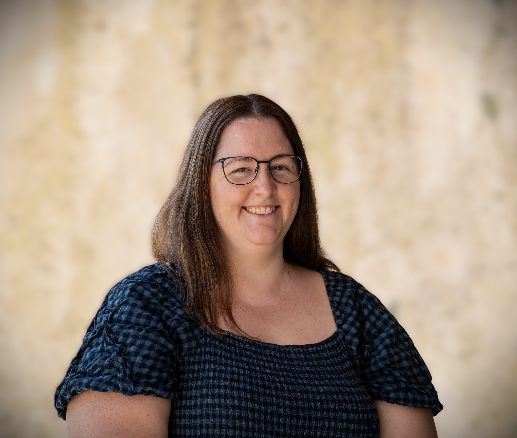Invited Workshop Speakers

Zhengkui Zhou
Avian Genetics and Genomics Workshop
The Duck 1000 Genomes Project
Zhengkui Zhou, PhD, is a research professor specializing in duck genomics and molecular breeding. He currently serves as the chief scientist of the Waterfowl Breeding and Nutrition Innovation Team at the Chinese Academy of Agricultural Sciences, and he organized and implemented the Duck 1000 Genomes Project in recent years. This initiative established critical genetic resources, including the Pekin duck × wild mallard F2 population and the Pekin duck × Liancheng duck gradient consanguinity segregating population. His team has identified multiple causal genes with significant breeding value, laying a theoretical foundation for meat-duck genetic improvement. His research achievements, published in Nature Communications and Advanced Science, have been actively translated into breeding practices. These efforts have significantly contributed to the development of new duck breeds, including the ZhongXu grassland white-feather meat duck and Zhongxin white-feather meat duck.

Tamsyn Uren Webster
Genetics and Genomics of Aquaculture Species Workshop
Can early-life priming improve stress and disease resistance?
Tamsyn Uren Webster, PhD, is a researcher at the University of Swansea (Swansea, UK).
Webster’s research broadly focuses on understanding how animals respond to pressing environmental challenges, including pathogen emergence, chemical pollution, and temperature changes. She primarily works on aquatic species and is particularly interested in examining the potential for rapid adaptive responses to environmental stressors, such as those mediated via host-associated microbiomes and epigenetic mechanisms.
Webster was awarded a PhD in molecular ecotoxicology from the University of Exeter in 2014 and has been a biosciences lecturer at Swansea University since 2021. She has published 38 peer-reviewed articles and obtained more than £600,000 in funding as primary investigator and co-investigator in the past five years. She has established productive collaborations with industrial partners and government agencies.
Her recent research on aquaculture-relevant species has examined dynamic microbiome sensitivity during early life stages, highlighting not just vulnerability to stress at this time but also the potential for microbiome conditioning to improve lasting resistance to stress and disease. Ongoing work is examining functional microbiome-host-pathogen interactions in Atlantic salmon and, as part of the European Cure4Aqua project, aiming to identify epigenetic and microbiome markers related to disease resistance in rainbow trout.
Webster will present their work examining the sensitivity of the microbiome and epigenome in early life in aquaculture species. While highlighting the potential for long-lasting disruptive effects, she will discuss how “conditioning” or “priming” the microbiome and epigenome could be used to benefit the host, for example, by enhancing resistance to environmental stressors and pathogenic challenges.

Elizabeth Ross
Microbiomes Workshop
Metagenomes, methylation, and methane: Using quantitative microbiology to tackle livestock emissions
Elizabeth Ross, PhD, is a senior research fellow at the Queensland Alliance for Agriculture and Food Innovation at the University of Queensland, where she leads the Ross Agri-Genomics Team. Ross’s research has spanned livestock, crops, and microbial systems, with a consistent focus on developing genomic tools that deliver real-world impact. Her career began with work on rumen microbiome-based prediction of methane emissions in dairy cattle and has since expanded to include horticultural crops, chickens, and tropical beef systems.
Ross is internationally recognized for her pioneering integration of long-read sequencing, functional microbiome profiling, and host genomics. She has led the development of novel saliva-based microbiome assays, nanopore-based genotyping pipelines, and dual host–microbiome frameworks to enhance trait prediction and selection accuracy—particularly for traits like methane emissions, fertility, and disease resistance.
She has secured over $6.8 million in competitive research funding, published more than 60 peer-reviewed papers, and collaborates widely across academia and industry both in Australia and globally. Alongside her research, she is passionate about mentoring emerging scientists and leads a dynamic, interdisciplinary team working across species such as cattle, sheep, sugarcane, and apple.

Gudrun Brockmann
Ruminant Genetics and Genomics Workshop
Assessing structural variants in DSN cattle and their impact on genomic features
Gudrun Brockmann is full professor and head of the Unit for Animal Breeding and Molecular Genetics at Humboldt-Universität zu Berlin (HU Berlin). Her research focuses on the genetic architecture of complex traits in livestock and model organisms, with particular interest in energy metabolism, immune responses, and breed diversity.
Brockmann studied biology with a focus on biophysics and genetics at Humboldt-Universität and earned her PhD in animal breeding and genetics at the Research Institute for Farm Animal Biology (FBN). Since her appointment as professor in 2003, she has led numerous interdisciplinary research initiatives, including as director of the Center for Genetic Variability and Adaptability, and has held several key academic leadership roles at Humboldt-Universität.
Her work integrates system genetics, molecular biology, and animal breeding and genomics to explore the relationship between genomic variation and phenotypic traits. She has supervised over 50 PhD students and authored more than 200 peer-reviewed publications. Brockmann’s fundamental and applied research has been continuously funded by the German Research Foundation (DFG) and federal ministries.
Brockmann’s recent projects include studies on genetic improvement and conservation of the German Black-Pied (DSN) cattle breed, which historically contributed to the development of the modern Holstein. Her findings reveal key genetic differences between DSN and Holstein, despite their shared ancestry, highlighting distinct genomic signatures affecting milk production. Other major achievements include the identification of Bbs7 as a gene underlying juvenile obesity in mice, and the discovery of regulatory mechanisms influencing immune traits and nutrient responses across species.
At ISAG 2025, she will present her latest findings on DSN cattle, focusing on their unique genomic architecture and relevance for sustainable dual-purpose breeding strategies.
More Coming Soon!
